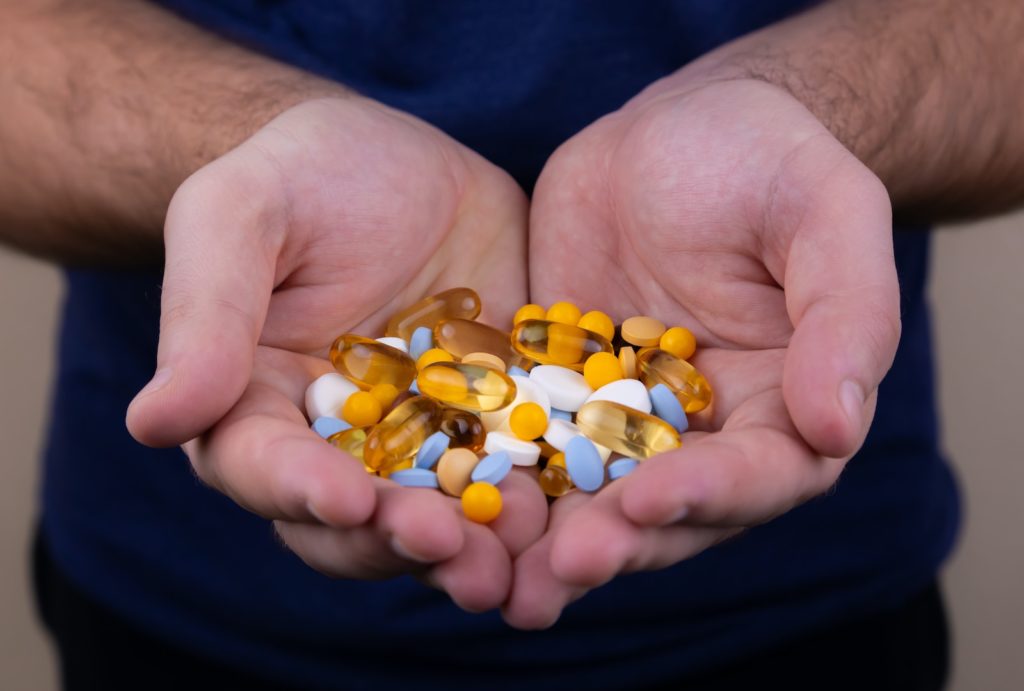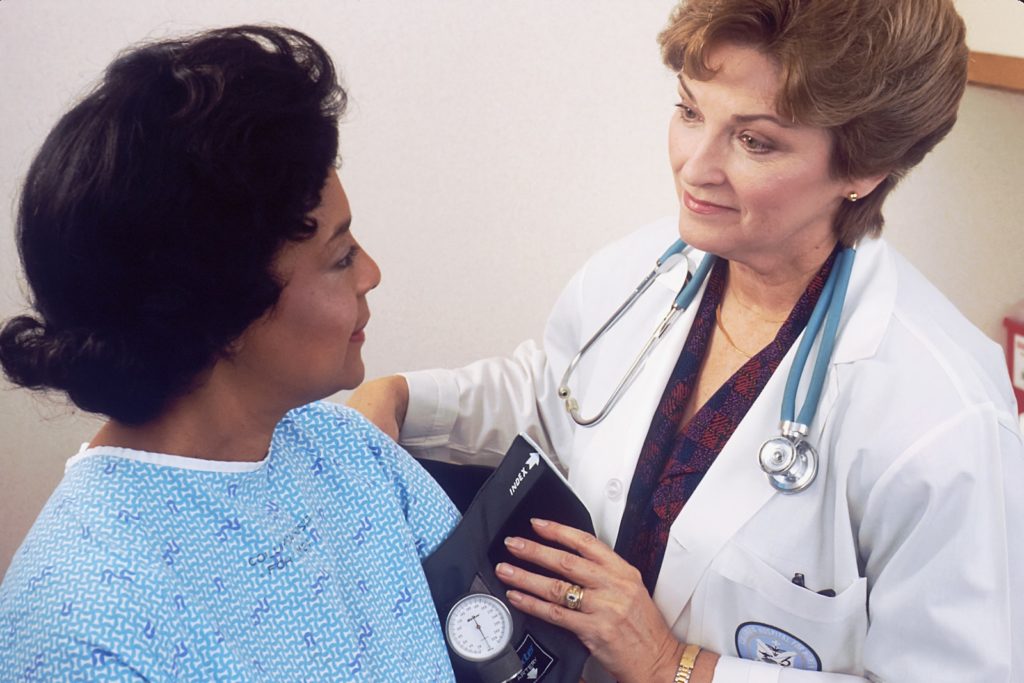Gastric bypass surgery, a transformative procedure designed to aid weight loss, has become an increasingly popular option for individuals struggling with obesity. This surgical intervention alters the digestive system, promoting significant and often rapid weight reduction. However, the journey to sustained weight management post-gastric bypass is not without its challenges. Patients are faced with the dual task of adapting to a new lifestyle while ensuring they meet their specific nutritional needs.
Gastric Bypass Surgery
The aftermath of gastric bypass surgery necessitates a comprehensive approach to weight management that extends beyond mere surgical intervention. It demands a commitment to lifestyle modifications, dietary adjustments, and, in certain cases, the inclusion of weight loss medications.
This article aims to shed light on a critical aspect of weight management after gastric bypass: the role of diet pills for gastric bypass patients.
Weight loss, a primary objective for individuals undergoing gastric bypass surgery, can be a complex and ongoing process. While the surgery initiates a significant reduction in stomach capacity, aiding in portion control, it does not eliminate the need for conscious dietary choices. Many patients find that, despite their best efforts, they may reach a plateau or face challenges in maintaining the achieved weight loss over the long term.

Understanding the nuances of weight loss after gastric bypass, and the potential hurdles patients may encounter, sets the stage for exploring the relevance of diet pills. These medications, when chosen wisely and used under medical supervision, can serve as valuable tools in the ongoing battle against obesity. However, caution must be exercised, as not all weight loss pills are suitable for individuals who have undergone gastric bypass surgery.
Weight Loss Goals for Gastric Bypass Patients
Gastric bypass surgery initiates profound changes in the digestive system, prompting rapid weight loss in the initial months post-operation. However, it is crucial for patients to recognize that this transformative procedure is not a one-size-fits-all solution, and achieving sustained weight management requires ongoing commitment.
The primary weight loss goals for gastric bypass patients extend beyond shedding excess pounds; they encompass adopting a lifestyle that supports long-term health and well-being. Patients often experience a rapid reduction in body weight in the initial postoperative period, driven by a combination of reduced stomach capacity and altered nutrient absorption. While this provides a promising start, maintaining this weight loss and preventing potential regain demand a multifaceted approach.
Challenges for Gastric Bypass Patients
Gastric bypass patients must navigate challenges such as nutritional deficiencies, changes in dietary tolerance, and the risk of falling back into unhealthy eating patterns. These challenges underscore the importance of setting realistic and sustainable weight loss goals. Rather than fixating solely on the numbers on the scale, emphasis should be placed on overall health improvement, increased physical activity, and the establishment of a balanced, nutrient-rich diet.

Furthermore, the psychological aspects of weight loss cannot be overlooked. Many patients grapple with issues related to body image, self-esteem, and the fear of regaining lost weight. Setting realistic expectations and focusing on non-scale victories, such as improved energy levels, enhanced mobility, and positive changes in mental well-being, can contribute significantly to the overall success of post-gastric bypass weight management.
Understanding the unique challenges and objectives of this patient population is pivotal in making informed decisions about the incorporation of medications into their post-surgery weight management strategy.
Types of Weight Loss Pills for Gastric Bypass Patients
As gastric bypass patients strive to achieve sustainable weight loss, the consideration of weight loss pills becomes a pertinent aspect of their post-surgery journey. Various types of weight loss pills are available, each with distinct mechanisms of action and potential benefits for individuals who have undergone gastric bypass surgery.
- Prescription Medications:
- Orlistat: This medication inhibits the absorption of dietary fat, aiding in weight loss. It can be particularly beneficial for gastric bypass patients who may already face challenges in nutrient absorption.
- Phentermine-Topiramate: A combination of appetite suppressant and anticonvulsant, this prescription medication can contribute to weight loss by reducing food cravings.
- Over-the-Counter (OTC) Pills:
- Green Tea Extract: Known for its antioxidant properties, green tea extract is found in some OTC weight loss supplements. It may provide a mild boost to metabolism.
- Conjugated Linoleic Acid (CLA): This fatty acid is marketed as a supplement that may help reduce body fat. However, its effectiveness for long-term weight loss is still under research.
- Appetite Suppressants:
- Phentermine: An FDA-approved appetite suppressant, phentermine can be beneficial for gastric bypass patients experiencing a slowdown in weight loss or struggling with food cravings.
- Liraglutide: Originally developed for diabetes management, liraglutide has shown promise in promoting weight loss by reducing appetite.
It is crucial for gastric bypass patients to consult with their healthcare providers before incorporating any weight loss pills into their regimen. Prescription medications, in particular, require careful consideration of individual health conditions and potential interactions with post-surgery dietary needs.
Additionally, recognizing the limitations and potential side effects of OTC supplements is essential to make informed choices in aligning these aids with specific weight loss goals post-gastric bypass surgery.

Types of Weight Loss Pills to Avoid for Gastric Bypass Patients
In addition to prescription medications and over-the-counter options, gastric bypass patients may encounter a variety of other weight loss pills in the market. It’s essential to explore the efficacy and potential considerations of popular choices, including keto pills, fat burners, and metabolism boosters.
- Keto Pills:
- Mechanism: Keto pills often contain exogenous ketones, which are compounds that mimic the ketones produced naturally in the body during a state of ketosis. They are designed to support the ketogenic diet, which is characterized by low-carbohydrate and high-fat intake.
- Considerations for Gastric Bypass Patients: While some gastric bypass patients may find success with the ketogenic diet, it’s crucial to approach keto pills with caution. The altered digestive system post-surgery may influence how the body processes fats and nutrients, and consulting with healthcare providers is imperative to avoid potential complications.
- Fat Burners:
- Mechanism: Fat burners typically contain ingredients that aim to increase the metabolic rate, enhance fat oxidation, or reduce fat absorption. Common components include caffeine, green tea extract, and thermogenic substances.
- Considerations for Gastric Bypass Patients: Gastric bypass surgery already alters the digestive process, and introducing additional stimulants through fat burners may affect patients differently. Individuals should be mindful of their tolerance to stimulants and consider the potential impact on sleep patterns and overall well-being.
- Metabolism Boosters:
- Mechanism: Metabolism boosters often include ingredients like caffeine, green tea extract, or certain vitamins that purportedly enhance the body’s ability to burn calories at rest.
- Considerations for Gastric Bypass Patients: Gastric bypass patients may experience changes in metabolic rate due to the surgery itself. Introducing metabolism boosters should be done cautiously, with attention to potential interactions with altered digestive function and any pre-existing health conditions.
It is crucial for gastric bypass patients to approach these additional categories of weight loss pills with a discerning eye. The impact of these supplements can vary among individuals, and healthcare providers should be consulted to ensure that the chosen pills align with the unique needs and sensitivities of post-gastric bypass physiology.
Importance of Choosing the Right Medications for Gastric Bypass Patients
The significance of selecting appropriate weight loss medications for gastric bypass patients cannot be overstated. As individuals embark on their post-surgery weight management journey, understanding the unique needs of their altered digestive system is paramount to ensuring both safety and efficacy in the use of weight loss pills.
- Individual Health Considerations:
- Gastric bypass patients often experience changes in nutrient absorption, making it imperative to choose medications that do not exacerbate nutritional deficiencies.
- Co-existing health conditions, such as diabetes or hypertension, must be taken into account when selecting weight loss pills to avoid potential adverse effects or interactions.
- Impact on Digestive Function:
- The altered anatomy resulting from gastric bypass surgery affects the way medications are absorbed and metabolized. It is crucial to choose medications that align with the changes in the digestive system to optimize their effectiveness.
- Avoidance of Harmful Ingredients:
- Certain weight loss pills may contain ingredients that could be detrimental to gastric bypass patients. For instance, high doses of caffeine or stimulants may cause discomfort or interfere with sleep patterns, which can be especially problematic for individuals with altered digestive physiology.
- Long-Term Sustainability:
- Weight management after gastric bypass surgery is a lifelong commitment. Therefore, the chosen weight loss medications should be sustainable for the long term, promoting continued success without compromising health.
Consultation with healthcare providers specializing in post-bariatric care is crucial for tailoring weight loss medication regimens to individual needs. These professionals can assess the patient’s overall health, address specific concerns related to the gastric bypass procedure, and provide personalized recommendations.

Choosing the right medications involves a delicate balance between achieving weight loss goals and maintaining overall health.
Side Effects and Components to Avoid after Gastric Bypass Surery
While weight loss medications can be valuable tools in the post-gastric bypass journey, it is crucial for patients to be aware of potential side effects and steer clear of components that may hinder their progress or pose health risks. Understanding these aspects is essential for making informed decisions about incorporating weight loss pills into a post-surgery regimen.
- Potential Side Effects:
- Gastrointestinal Distress: Gastric bypass patients are already susceptible to changes in digestive function. Some weight loss pills may exacerbate symptoms such as nausea, diarrhea, or abdominal discomfort.
- Interference with Nutrient Absorption: Certain medications may hinder the absorption of essential nutrients, potentially leading to deficiencies. This is particularly significant for individuals who have undergone gastric bypass surgery.
- Components to Avoid:
- Excessive Caffeine or Stimulants: High doses of caffeine or stimulants can lead to jitteriness, increased heart rate, and disrupted sleep patterns. Gastric bypass patients, with their altered physiology, may be more sensitive to these effects.
- Artificial Additives: Some weight loss pills may contain artificial colors, flavors, or preservatives that can be problematic for individuals with sensitivities or allergies.
- Consideration of Individual Sensitivities:
- Gastric bypass patients vary in their tolerance to medications. It is crucial to be mindful of individual sensitivities and allergies when selecting weight loss pills to prevent adverse reactions.
Patients should proactively communicate with their healthcare providers about their medical history, including any pre-existing conditions or allergies. This collaboration ensures that potential side effects are minimized, and the chosen weight loss pills align with the specific needs of gastric bypass patients.
By understanding potential pitfalls and proactively addressing concerns related to side effects and components, individuals can approach their weight management journey with greater confidence and efficacy.
Role of Appetite Suppressants
Gastric bypass patients often encounter challenges in maintaining weight loss over time, and this is where appetite suppressants can play a pivotal role in supporting their efforts. Appetite suppressants, when used judiciously and under medical supervision, can be effective tools to combat cravings, enhance portion control, and facilitate sustained weight management post-surgery.
- Addressing Slowdown in Weight Loss:
- Post-gastric bypass, some patients may experience a plateau or slowdown in weight loss. Appetite suppressants can provide an additional boost by curbing excessive hunger and promoting adherence to dietary guidelines, facilitating continued progress.
- Preventing Weight Regain:
- The fear of regaining lost weight is a common concern for gastric bypass patients. Appetite suppressants can be instrumental in preventing weight regain by helping individuals adhere to healthier eating habits and resist the temptation to overeat.
- Complementing Nutrition and Physical Activity:
- While appetite suppressants can be beneficial, they are most effective when integrated into a comprehensive weight management plan. Proper nutrition and regular physical activity remain foundational elements of post-gastric bypass success.
- Choosing Appropriate Suppressants:
- Not all appetite suppressants are created equal, and the choice of medication should be tailored to individual needs. Consulting with healthcare providers ensures that the selected suppressant aligns with the patient’s health status and post-surgery requirements.
- Monitoring for Side Effects:
- Regular monitoring for potential side effects is crucial when incorporating appetite suppressants. Healthcare providers can adjust dosage or recommend alternative options if adverse reactions occur, ensuring the safety and well-being of the patient.
It is essential for gastric bypass patients to approach appetite suppressants as part of a holistic weight management strategy. These medications should not serve as standalone solutions but rather as supportive tools to reinforce healthy behaviors.

Understanding the role of these suppressants empowers individuals to make informed choices that align with their unique post-surgery needs and goals.
Conclusion
In the pursuit of sustained weight management after gastric bypass surgery, the careful selection of diet pills emerges as a crucial component of a comprehensive strategy. As we conclude this exploration into the world of weight loss medications for gastric bypass patients, several key considerations come to the forefront.
- Holistic Approach to Weight Management:
- Gastric bypass patients must recognize that diet pills, including appetite suppressants, are not standalone solutions. Success lies in the integration of these tools into a holistic approach that includes balanced nutrition, regular physical activity, and ongoing behavioral adjustments.
- Individualized Decision-Making:
- The importance of individualized decision-making cannot be overstated. Each patient’s post-surgery journey is unique, influenced by factors such as overall health, lifestyle, and specific challenges. Consultation with healthcare providers specializing in post-bariatric care is paramount in tailoring weight loss strategies to individual needs.
- Mitigating Potential Risks:
- Understanding the potential side effects of weight loss pills, avoiding harmful components, and being vigilant about individual sensitivities are vital steps in mitigating potential risks. Patients must be proactive in communicating with their healthcare providers to ensure a safe and effective weight management plan.
- Long-Term Commitment:
- Weight management after gastric bypass surgery is a lifelong commitment, and the choice of diet pills should align with this long-term perspective. Sustainable success requires ongoing vigilance, adaptation to changing needs, and a dedication to maintaining a healthy lifestyle.
- Role of Appetite Suppressants:
- Appetite suppressants can serve as valuable allies for gastric bypass patients facing challenges such as a slowdown in weight loss or the fear of weight regain. Their role, however, is most effective when viewed as part of a broader strategy that encompasses various facets of a healthy lifestyle.
Armed with knowledge about the types of weight loss pills, the importance of choosing the right medications, and the role of appetite suppressants, individuals can navigate this path with greater confidence. By embracing a holistic and individualized approach, gastric bypass patients can optimize their chances of achieving and maintaining a healthier weight for the long term.